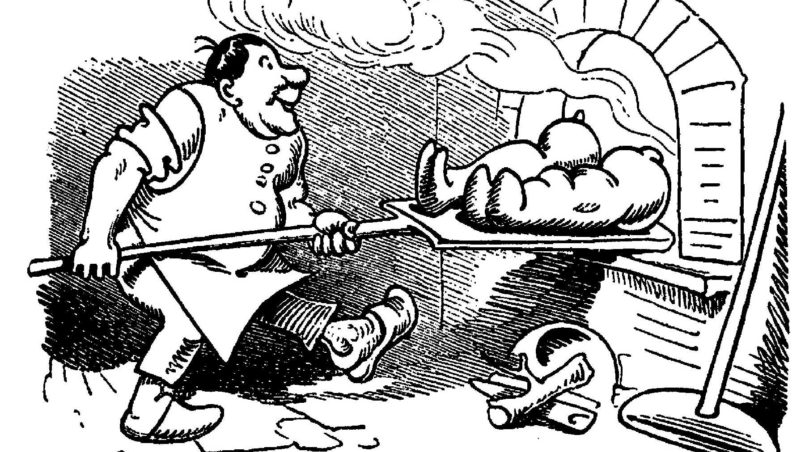Punishment and Atonement – The Panacea for any Ailment?

Revenge and retribution are primitive impulses – to which we give too much space
We even tend to punish our children for their little offenses with uncalled-for harshness, without noticing that this is akin to fighting fire with fire. You cannot force feed anyone decency and charity, you can only lead by your example – a simple fact we have been ignoring for generations, thus continuing the traditions of the Black Pedagogy*.
Physical and psychological violence against children, animals, anyone weaker than oneself and outsiders is the language in which this cruelty is passed on.
It sits deep in our collective subconsciousness, our worldview and our convictions. It is so important for us to pronounce severe punishments for certain offenses that we completely overlook how much damage is done in this way.
There is a great difference between justice and revenge
There are numerous examples of dilemmas that our otherwise surefooted sense of right and wrong cannot solve.
Should you sacrifice one person if by doing so you can save several? May animals be experimented on to bring humanity great advances? Is it fair that someone making the same effort but achieving less receives equal payment?
Whether or not there even is an absolute truth here, as long as we are not only disunited, but angrily fighting over such issues, can this be capitalized on politically – with all the ugly side-effects that are observable around the world daily.
There is an equally great difference between law and justice
Laws serve to preserve the status quo – also referred to as public order. Because the temptation to appropriate foreign property is much greater and more widespread than, say, the temptation to break a stranger’s arm, the penalties for both offenses are about the same. Morally, there are worlds between violations of property rights and violent crimes, but before the law, they are judged in roughly the same manner for purely practical economic reasons.
If penalties cannot provide justice, does the deterrent effect at least work?
When it comes to offenses such as shoplifting or vandalism, just go ahead and ask yourself: do we only refrain from them because the impending punishment frightens us? No, respect and community spirit forbid both. Anyone lacking these qualities, however, cannot be deterred by the threat of consequences – for, in order to not want to do others any injustice, precisely the same intellectual agility is required, which is also necessary to imagine the possible personal consequences of an action with enough detail.
Even more naive is the argument of deterrence in the case of violent crimes. Instinct-driven offenders can no more be stopped with punishment than could crimes of passion or rage. These people act out of an uncontrollable compulsion, or such intense anger, that they cannot master it at the time of the crime. No consequence would be terrible enough to even reach their reasoning at that moment.
What might constitute more useful and meaningful consequences?
All discussions of how much understanding and mildness criminals deserve aside, at least one thing is certain beyond any doubt: to lock somebody up with the worst possible company for years and then to expect them to come out repentent and ready to start a better life is a very peculiar outlook.
… which, for most of them, is probably only a continuation of what the world threw at them from the very beginning. Whether this is really fair in the larger context, I consider worthy of further discussion, whether it is helpful to anyone at all though, can very clearly be answered with “no”.
The idea of offering prisoners a good life with a certain degree of freedom, returning them to a normal and fulfilling existence, and resocialising them, continually meets with vehement opposition. Where is the atonement, where the satisfaction for society and for the victims? Instead of leaving room for such profane desire for revenge in our own hearts, we should rather consider what is good and useful to all of us, regardless of whether we risk (possibly) being kinder to one person than they deserve.
Of course one must keep one’s feet firmly on the ground. There is much more potential than we believe, but no one has yet found a magic cure for the genuine love of violence in a person.
Obviously, we have to keep mentally ill and emotionally stunted perpetrators, who either have no capacity or no interest in changing, away from the rest of us (under humane conditions). And, of course, a person who committed a crime must atone to society – this is not about criminal acts having zero consequences, it is about them being meaningful and, in the best sense, salutary.
What we can change in any case, is the future, which no longer has to produce broken human existences if we were only firmly determined to allow it not to happen.
The deeper reason why people get into such states is of the greatest interest if we want to find a real solution.
The cycle of traumatisation must be interrupted. Parents and children need access to mediation, help and healing wherever needed, especially in the case of bitter and toxic separations. Our schools must stop turning happy children into nervous wrecks shaking with fear of failure. Young people need prospects, hope, support. The resources for this have to be freed, the gigantic profit for all of us will pay back the investment a thousandfold if we can together break free from the stranglehold of the hidden family dramas.
How many cases of burnout, murder, alcoholism, abuse could be avoided? How many failed existences would instead become an enrichment for our society – how much more cautiously would we treat each other, and how futile would this render any attempt to divide and terrify, or even to push us to wars?
Punishment and atonement come too quickly to us as a panacea for any ailment, whether it be unemployment, addiction or sheer inadequacy. We have to banish this kind of thinking from our minds and think of it in categories of usefulness and humanity of our actions – for all our well-being.
Credits
| Image | Title | Author | License |
|---|---|---|---|
 |
Max_&_Moritz_(Busch)_076 | Wilhelm Busch | Public Domain |
